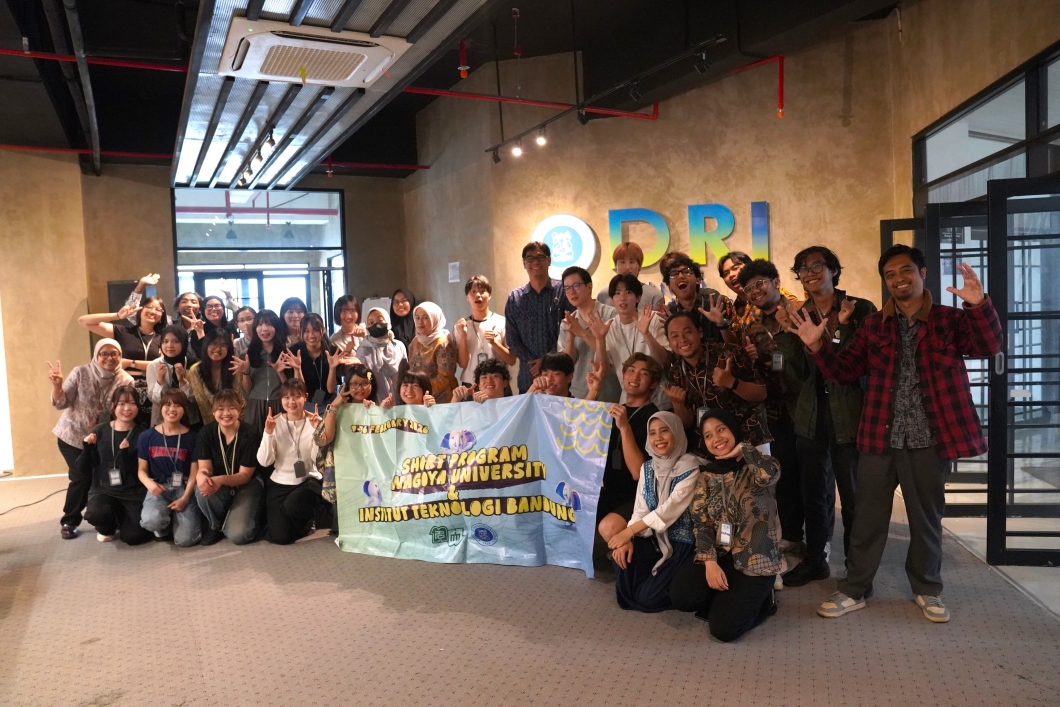SCCIC ITB International Workshop: Smart City Solutions for Sustainable Cities
By M. Naufal Hafizh, S.S.
Editor M. Naufal Hafizh, S.S.
BANDUNG, itb.ac.id - The Smart City and Community Innovation Center at Institut Teknologi Bandung (SCCIC ITB) hosted The International Workshop for Smart Cities and Circular Green Economy 2023, focusing on the theme "Enhancing the Quality of Life in Cities Through the Digital Transformation of a Circular Green Economy."
The event, which explored various issues related to sustainability, the green economy, and community resilience to climate change, took place at the ITB East CC Science and Technology Auditorium, Ganesha Campus, on Tuesday (12/12/2023).
The workshop comprised several sessions, one of which centered on the Sustainability Framework, Green Economy, and Climate Change Community Resilience.
The Regional Project Manager of UCLG ASPAC, Helmi Abidin served as one of the speakers during this session. He addressed common challenges confronting cities globally, such as increasing populations, access to basic services, environmental challenges, climate change, and disaster risk.
He also emphasized global and national commitments to sustainable development, referencing milestones like the International Decade for Natural Disaster Reduction (IDNDR) in 1989, the Hyogo Framework for Action (HFA) in 2005, and the UN World Conference on Disaster Risk Reduction in 2015.
He provided an overview of global smart city trends, highlighting urbanization, technology as an economic growth driver, and innovation for sustainable living environments. He discussed various smart city practices worldwide, citing examples from cities like Songdo in South Korea, Melbourne, and New York, to inspire smart city development in Indonesia.
In an endeavor to present smart city solutions in Asia, the workshop adopted the UNESCAP definition of a smart city, emphasizing technology's role in supporting more efficient work, living, playing, and learning opportunities in an inclusive manner, fostering economic growth, and facilitating a sustainable living environment.
The workshop identified several issues and opportunities to create a smart city ecosystem in Indonesia. Smart city development involves collaboration between the government, associations, technology/industry partners, and media.
Smart city development encompasses various elements such as public services, bureaucracy, public policy, tourism, business, city layout, industry, welfare, financial transactions, environmental harmonization, health, transportation, society, education, security, environmental protection, waste management, and energy.

An initiative presented at the workshop is the smart cities innovation lab, aiming to enhance sustainable solutions through collaboration between local governments, development partners, technology companies, and startups. Three concrete opportunities to be realized in the smart cities innovation lab are addressing plastic pollution, traffic congestion, and air pollution.
Cities play a crucial role in climate change action, particularly in improving the transportation sector and energy efficiency. “Local government associations are expected to disseminate innovative solutions, and inter-city cooperation would enhance knowledge and best practices in addressing climate issues,” he stated.
Reporter: Hafsah Restu Nurul Annafi (Urban and Regional Planning, 2019)
Translator: Hanifa Juliana (Urban and Regional Planning, 2020)
Editor: Anggi Nurdiani (Management, 2024)




.jpg)
.jpg)
